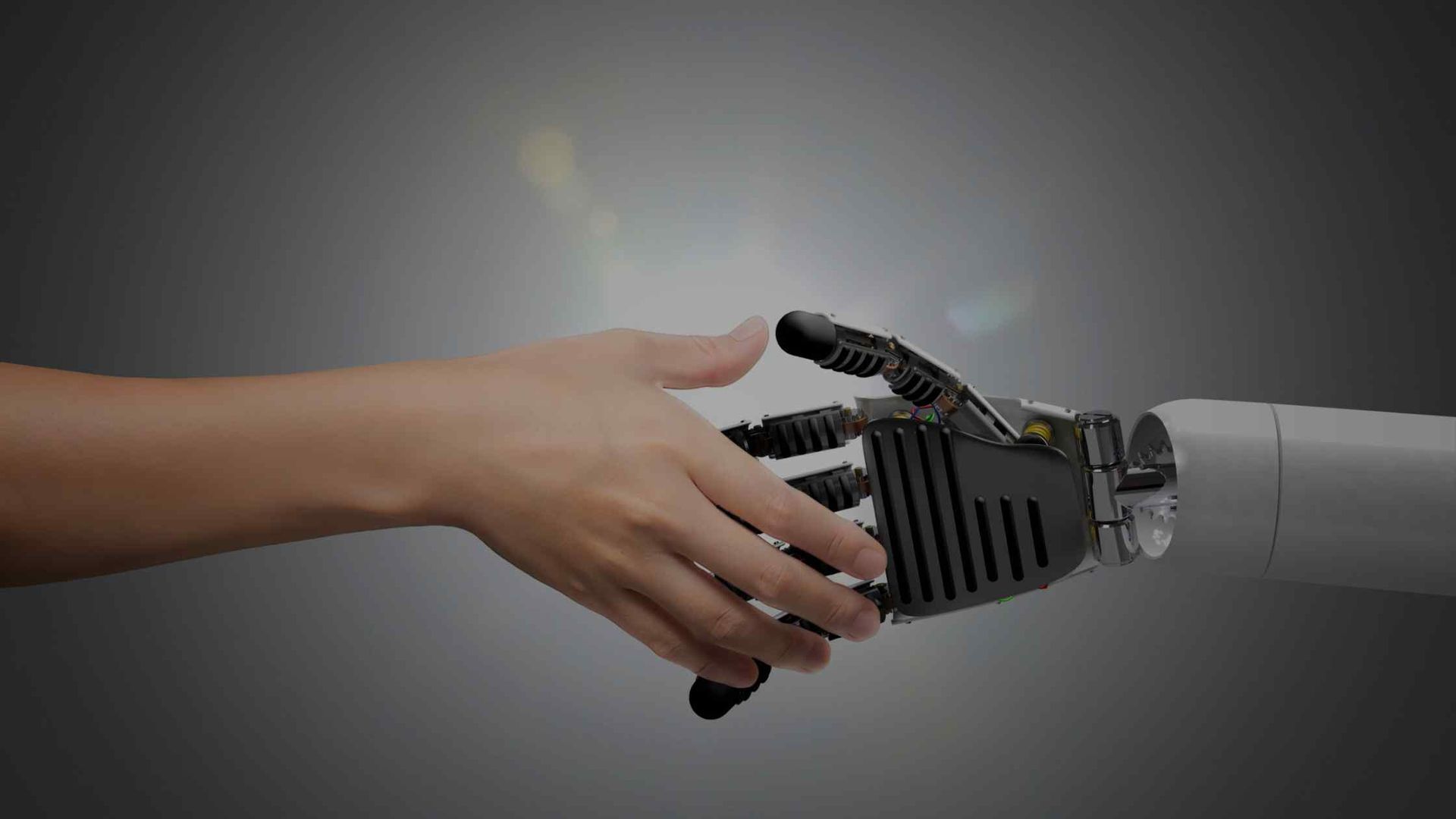AI Trends
The artificial intelligence (AI) and machine learning (ML) job market is undergoing rapid transformation, with significant investment and adoption across industries. AI is no longer confined to tech giants; it is now a core part of all sectors such as finance, healthcare, manufacturing, and retail. The AI economy is projected to contribute over
$15.7 trillion to the global GDP by 2030, with automation, machine learning, and generative AI driving efficiencies and innovation.
Companies are leveraging AI to optimise operations, enhance customer experiences, and develop new business models. With AI adoption accelerating, demand for skilled professionals continues to outpace supply, making talent acquisition a key challenge for businesses looking to stay ahead in an AI-driven world.
Growth in AI Job Opportunities and Employment Projections
Latest in AI: What’s Making Headlines
2025 Talent Trends and Future Predictions
From AI Democratisation to Specialisation
While no-code/low-code platforms have made basic AI more accessible, organisations investing in cutting-edge capabilities are doubling down on specialised AI talent. Rather than replacing technical roles, these tools are expanding the scope of innovation — placing more emphasis on architects, engineers, and researchers who can build bespoke solutions and integrate AI into complex systems.
Gen AI and LLMs Integrations
Businesses are investing heavily in the development, fine-tuning, and operationalisation of large language models (LLMs) to power products like chatbots, copilots, and content generation tools. As a result, roles focused on LLM infrastructure, prompt design, multi-turn dialogue systems, and deployment at scale are seeing increased demand across both startups and enterprises.
AI Infrastructure and MLOps Scaling
Organisations are realising that building models is just one part of the challenge — deploying and maintaining them efficiently is another. This is fuelling the need for MLOps Engineers, AI Infrastructure Engineers, and ML Systems Engineers who can scale and monitor AI systems in production environments.
Specialised & Emerging Job Titles
AI hiring is shifting from generalist roles to highly specialised positions. In-demand titles now include LLM Engineers, MLOps Engineers, Personalisation & Ranking Specialists, AI Research Scientists, and Machine Learning Engineers – Recommendation Systems. Roles such as Prompt Engineers, AI Product Engineers, and AI Governance Professionals continue to grow, but hiring managers are now increasingly seeking experts with domain-specific capabilities in areas like multi-modal AI, retrieval-augmented generation (RAG), and LLM deployment and optimisation.
AI Governance, Risk & Ethics
The spotlight on responsible AI is growing. Regulatory frameworks such as the EU AI Act are forcing companies to build teams around AI governance, bias mitigation, and compliance. This goes beyond traditional “AI Ethics” roles, encompassing skills in policy implementation, risk modelling, and audit readiness.
AI Engineer / Applied AI Engineer
- Builds and deploys AI-powered applications, often integrating computer vision, NLP, or automation into products.
AI Product Engineer
- Combines software engineering with a deep understanding of AI tools to develop scalable AI features in products.
Prompt Engineer
- Crafts effective prompts to improve the outputs of generative AI systems like ChatGPT or Claude. Crucial in LLM-based product development.
AI Research Engineer / Scientist
- Explores new frontiers in AI theory and applications — from multi-modal learning to reinforcement learning and beyond.
Generative AI Engineer / LLM Engineer
- Specialises in building and fine-tuning generative models such as LLMs, text-to-image models, and RAG systems.
Multi-Modal AI Specialist
- Works with models that process and combine different data types (text, image, audio) to power next-gen AI capabilities.
AI Infrastructure Engineer / Architect
- Designs and maintains the computing infrastructure necessary for training and deploying advanced AI models at scale.
AI Governance, Ethics & Regulation Specialist
- Ensures responsible AI development by addressing issues like fairness, transparency, regulatory compliance, and ethical risk mitigation.
Machine Learning Engineer
Builds and optimises ML models and pipelines. Specialisations include:
- Recommendation Systems: Designing algorithms that power product and content suggestions.
- Personalisation & Ranking: Developing models that tailor results based on user behaviour and preferences.
- LLM Deployment: Adapting large language models for production use.
Machine Learning Data Scientist
Focuses on data-driven model development, often with a focus on:
- User Modelling: Predicting user actions and behaviours.
- Predictive Analytics:
Leveraging historical data to forecast future outcomes.
ML Research Scientist – Recommender Systems
- Conducts advanced research to improve the accuracy, relevance, and performance of recommendation engines.
Deep Learning Engineer
- Works on complex neural networks and architectures used in image recognition, speech processing, and more.
NLP (Natural Language Processing) Engineer
- Builds systems that understand, interpret, and generate human language using transformer models and LLMs.
MLOps Engineer – LLM Optimisation
- Combines ML engineering and DevOps to streamline the deployment and performance of ML/LLM models in production environments.
ML Infrastructure / Systems Engineer
- Designs the scalable backend infrastructure needed to support ML model training, testing, and deployment at scale.
AI and ML Skills in Demand
Programming Proficiency
- Expertise in Python remains essential, along with familiarity in R, Java, or C++ for more specialised roles. Libraries like NumPy, Pandas, and Scikit-learn form the foundation for most ML workflows.
Machine Learning Frameworks
- Hands-on experience with frameworks such as TensorFlow, PyTorch, JAX, or Hugging Face Transformers is critical for building, training, and deploying models — particularly in deep learning and LLM roles.
Large Language Model (LLM) Development & Deployment
- Skills in fine-tuning, prompt engineering, and deploying models like GPT, BERT, or open-source LLMs are in high demand across applied AI and generative AI roles.
MLOps & Model Optimisation
- Knowledge of tools like MLflow, Kubeflow, Docker, and Kubernetes is crucial for roles in MLOps, model optimisation, and scaling ML systems in production environments.
Natural Language Processing (NLP)
- Understanding tokenisation, named entity recognition (NER), sentiment analysis, and transformer-based NLP models is key for roles in AI product development and customer interaction systems.
Personalisation & Recommender Systems
- Experience building ranking algorithms & personalised experiences using collaborative filtering, deep learning, or user modelling techniques is increasingly valued by consumer-focused tech companies.
AI Ethics, Governance & Regulation
- As AI adoption grows, so does the demand for professionals with knowledge of ethical frameworks, bias mitigation, and evolving compliance regulations such as the EU AI Act or U.S. AI policy guidelines.
Multi-Modal AI & Retrieval-Augmented Generation (RAG)
- Specialist skills in building models that combine text, image, or video data — and in designing RAG pipelines to improve LLM outputs — are emerging areas of competitive advantage.
Advice for Hiring Managers
To attract and retain top AI talent, hiring managers should consider the following strategies:
AI & Machine Learning Recruitment News and Insights
Looking to hire top AI talent?
Fill in the form or contact us via email or phone: hello@masonalexander.ie
+353 1 685 4414










